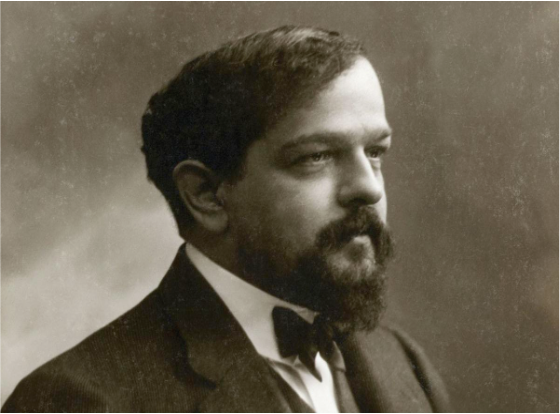


French composer and pianist who was very innovative and influential by developing an original musical harmony and structure on the basis of the ideals of "impressionism"("impressionism" in music is an approach that aims to create moods and sensuous impressions through harmony and colour), although he mostly associated himself with symbolist poets. A few of his most important works are: "Prelude à l’Après-midi
D’un Faune", through which he achieved instant recognition at the age of 32, "Clair de Lune", and "La Mer".
Born in Paris to a poor family and with his father in prison, he was fortunate enough to be taught by an excellent pianist. Shortly before his death, the musician wrote that it was to his teacher that “he owed the little he knew about the piano”. He entered the Paris Conservatory, where he studied piano and composition and at 24 years old he won the Grand Prix Rome.
Debussy's music was to a great extent a reaction against the German music tradition of straightforward music. His music style was unique through a different harmonic language and a polyphony which was creating a mysterious and atmospheric result. He was particularly fond of the spectrum of tones that arise by vibrating a string. He was also influenced by symbolic art and literature, so the combinations of sounds he was using were inspired by this symbolism. Debussy wanted his audience to participate actively, by deciphering the music, and understand its meaning behind the symbolism in the sounds and silences he was using. His sources of inspiration were literature and nature. But being unable to travel, due to his financial difficulties, he was using his imagination for the landscapes he represented in his music.
Debussy was a very complex personality, with many crises of depression, also shy and unsociable. Mary Garden, a performer, had this to say about Debussy: “I honestly don’t know if Debussy ever loved anybody really. He loved his music – and perhaps himself. I think he was wrapped up in his genius… He was a very, very strange man.”
Debussy lived a life of extremes and passionate intensity, an indulgent life with many love affairs, some of them ending with a scandal, such as his first wife committing suicide because of his infidelity . "I was a happiness addict", he had declared. The greatest love of his life, however, was his daughter.
Debussy's music exerted a significant influence on many future composers, especially jazz musicians. According to Stephen Hough of the New York Times, "This [Debussy's music] is not mood music, pretty sounds assembled at a dilettante’s whim. Behind the bells and the water and all the poetic imagery is an abstract musical mind of the utmost intellectual rigour — an architect of genius, despite the small scale of the buildings".